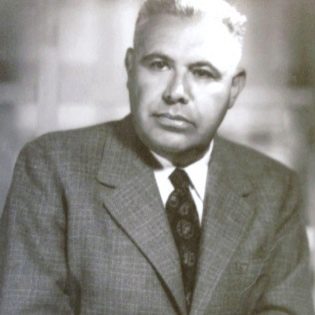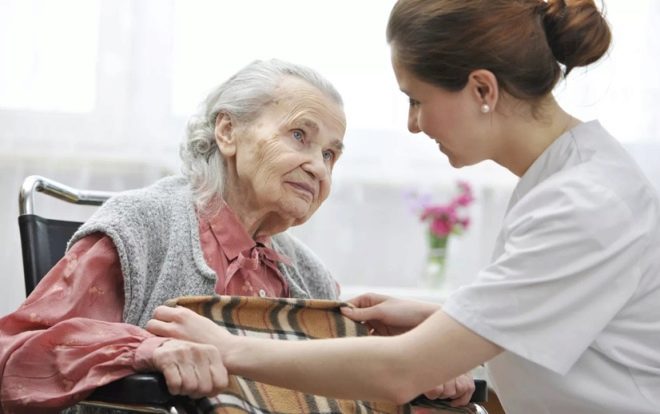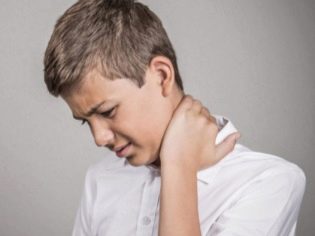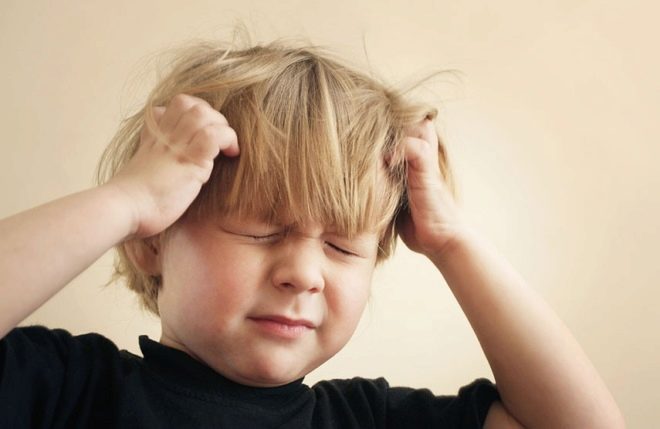What is psychosomatics and how does it help in the treatment of diseases in adults and children?
A positive attitude helps to overcome any disease, while the depressed state only aggravates even a minor ailment. This has been known for a long time. Psychosomatics helps to understand the subtle connection between our mental state and our illnesses.
If you know its basics, many diseases can be avoided altogether, and those with diseases in children and adults can be treated more effectively.
Definition
Psychosomatic medicine, or psychosomatics, got its name from two Greek words: ψυχ - soul and σμα - body. Some believe that this is a newfangled passion, pseudoscience and just another fiction of modern psychologists, allowing them to earn money from publishing books and consulting.
In fact, psychosomatics is officially considered a part of medicine, its section studying the influence of psychological and mental causes on the development and course of physical ailments.
Psychosomatic medicine examines the mechanisms and relationships between certain personality traits, the character of a person, his behavior and models of thinking, his emotions and ways of living with one or another very specific disease.
People often hear the phrase that "all diseases arise from nerves." Those who like to say so, do not even suspect how right they are: certain emotions and stresses that occur in a person, if they do not have an outlet, accumulate and cause neurological changes on a physical levelwhich lead to the development of the disease.
Story
Doctors and philosophers of ancient Greece noticed the connection between the soul and the body. Aristotle described this connection, and the famous physician Hippocrates argued that without healing of the spirit, healing of the body is impossible, since this is one whole and one can be the cause of the other.
For centuries, the studies of ancient physicians and scientists were neglected, and it was not until 1818 that German Dr. Johann-Christian Heinroth, observing mental manifestations in illnesses and painful thoughts in his patients, decided to use the term psychosomatic first.
In the 1930s, the psychosomatic trend officially entered medicine. and became known as psychosomatic medicine. The greatest minds worked in this direction - Sigmund Freud, Franz Alexander. Since 1939, the professional journal “Psychosomatic Medicine” has been produced, and In 1959, for the first time in the world in the USA, the National Psychosomatic Society was created.
Dr. Freud, a few decades before these events, investigated not only the human "unconscious". He paid a lot of attention to psychosomatics. In particular, he took several diseases, which at that time doctors classified as “hysterical” and found out exactly how asthma and allergy, false pregnancy and migraine develop.His research inspired many doctors - human diseases began to be studied not only from the point of view of biology and physiology (what happens during illness in the body), but also from the point of view of metaphysics (what happens in the emotional sphere and psyche).
Dr. Freud believed that any unsolved problem that a person drives away from himself, any unpleasant thoughts that he tries to drive away instead of solving a problem lead to a serious internal conflict. Diseases in this case can not be avoided.
People tend to be afraid to look at the problem directly in the eyes, Freud thought, and therefore it is easier for them to get rid of the unpleasant, to close their eyes to something. This gives the illusion of security. But only for a while.
Driven deep inside the problem continues to live and causes disease.
In the 1930s, a doctor and scientist Franz Alexander, being a processor of the University of Chicago psychoanalysis, was able to classify and describe in detail the mechanisms for the occurrence of seven "hysterical" diseases. Description received the name "Chicago Seven Psychosomatic Diseases," and every doctor of any specialty knows it by heart today.. It includes diseases that develop in almost 100% of cases under the influence of psychogenic influences: bronchial asthma, hypertension (high pressure), peptic ulcer disease, rheumatoid arthritis, type 2 diabetes mellitus, neurodermatitis, and coronary syndrome.
Today, thanks to the work of physicians and scientists, the seven has ceased to be just the seven, and other diseases have also entered it., such as psoriasis, hyperthyroidism, irritable bowel syndrome, migraine, male and female infertility, if it is not caused by disorders of the reproductive system, and others.
Today, the basics of psychosomatics are taught to students of medical universities, doctors in refresher courses, she has a significant role in the diagnosis and treatment of diseases in both adults and children. There are many authors who, in an accessible form for a wide circle of readers, tell about the causes and mechanisms of the development of psychosomatosis - Louise Hay, Valery Sinelnikov, Liz Burbo, Grigory Semchuk other.
Basic principles
In the human body there is a continuous, close relationship between his psyche and his physiology. This relationship is mutual: due to mental disorders, quite physiological ailments can develop, and due to physical disorders psychological difficulties and changes in world perception can occur.
It should be understood that for the development of the disease is not enough one negative thought, you need a long, chronic presence in a state of stress or internal conflict.
The famous psychologist Leslie Le Cron formulated the basic principles for the development of psychosomatic diseases.
Internal struggle
To the disease can lead "fighting" that go inside the person himself, when different parts of his personality cannot “agree” among themselves. One of their opposing forces is always unconscious, and is not perceived by the person, the other is conscious, the person is well aware of it.
For example, two desires (to have a child - consciously, the fear of motherhood due to a deep childhood trauma, when the daughter saw how difficult it was for her mother - unconsciously). In combination, psychogenic sterility develops.
If even one part wins, the second, not exterminated, leads “underground sabotage subversive activities”, sooner or later leading to the development of the disease.
It is noteworthy that as a result of such an internal war, there are also turns of speech that can tell a lot to the therapist.
People with intestinal disorders and stomach ailments very often use revolutions like “I don’t digest” (someone or some events), people with joint diseases often say: “I am bound hand and foot”, people with mental disabilities often use a phrase like “Go crazy,” “this is some kind of madness,” and those who suffer from psychosomatic headaches often say the phrase: “This is some kind of headache.”
Disease - alibi
For the development of a motivated disease a person always has a good reason - the illness serves as an excuse for him, an alibi. Ailment is beneficial.
Such a disease develops at the level of the unconscious, that is, a person does not want to get sick consciously, but in his soul he wants to achieve a certain goal and the illness for him is a tool for achieving it. So a head hurts a woman who doesn’t want intimacy with a man (she doesn’t pretend, she doesn’t make excuses, she really hurts her head), so an overbearing person who wants to command and control her family, keep them close, starts to suffer from intolerable the stomach.
Pain gives them the opportunity to give orders, to demand the presence of a number, because no one refuses the patient!
A person who does not want to go to an unloved job, but has to do it for years, sooner or later begins to suffer from diseases of the joints of the legs, which prevents him from walking and continuing to harass and coerce, and the reticent person who is irritated by the need to communicate with others, begins to suffer or vitiligo, to have every reason to stop going into society, to limit contacts.
Exactly so children who do not want to go to kindergarten or to school are getting sick psychosomatically - Mom will definitely leave home with fever and cough and you can lie down, watch cartoons, this is much nicer.
Many complaints of older people are not a simulation, but a real symptom, which was created by man in order to attract the attention of grown children and grandchildren.
Experience
Difficult experience experienced by man (including the experience from childhood) can impose a deep imprint on both the conscious and the subconscious personality. Only one traumatic event can permanently keep its imprint on the emotional sphere.. The impact of such an imprint can be terrifying in scope.
The most severe, intractable and incurable diseases cause old children's psychological trauma.
A person who saw in his childhood how his father regularly beats his mother can be cruel himself, and sometimes this will cause his adult cardiovascular diseases. The negative experience of childhood can cause the adult man or woman to distrust the opposite sex, which very often leads to diseases of the reproductive organs.
Severe resentment from childhood, which the person has not exhausted, becomes the cause of cancer.
Identification
This principle concerns the imitation of all children and adults. The disease develops the same as that of the person with whom the patient identifies.. Usually this happens between people who are connected by close emotional ties, kinship, great feelings. And we do not always identify ourselves with those who are alive.
Diseases of identification most often develop with dead people who are dear to us.. Thus, a woman who still cannot let go of the emotional connection with her own mother, who died of cancer, is struggling with oncology. So the wife has the same diseases as her husband after several decades of happy marriage.
Self suggestion
A very common principle in psychosomatic medicine. At the level of the unconscious, the person actually makes the decision to be sick.. He can make such a conclusion himself, and he can listen to the opinion of an important person. He takes it for the truth that he is ill. And at first it is not, but only at first. Gradually, quite real changes are developing in a particular organ or system.
For example, a man began to suspect that he had a tumor in his stomach. He believed in it, he goes to the doctors, and they deny the disease - there is no tumor. He believes that doctors are wrong and continues to be examined.
Sooner or later, the tumor is found, the person triumphant - he was right, "he knew!".
Illness as punishment
Since childhood, we have been raised on the conviction that all bad things must be punished: in fairy tales, good heroes will surely beat and punish the evil, the bad deed of a child is punished by the parents. But what can an adult, whom there is no one to put in a corner for a bad deed, to be whipped? He begins to punish himself, because from childhood he firmly learned that punishment contributes to the removal of guilt. (punished - released - free).
It doesn’t matter whether the wine is real or the person invented it himself, he creates a disease for himself that he perceives as a punishment, thus making it easier for him to cope with his own sense of guilt.
Psychosomatic diseases - how do they appear and develop?
At the heart of any psychosomatic illness are the so-called "stressors". There are external stressors, and there are internal ones. External - circumstances, events, people, actions. These include the loss of a person who was very close, losses, natural disasters and catastrophes, military actions in which a person finds himself. They influence his behavior, reactions, assessment of events, himself. Internal stressors are a set of emotions and feelings., who live inside each person - sadness, aggression, anger, resentment, fear.
Stressors surround us and live in us all the time. But not all psychosomatic diseases caused by them develop. What is the matter? But the point is how strong and durable the stressors are and how much we ourselves know how to live and let them go.
The probability of getting sick increases if:
- a person is under stress too long, he has become chronic;
- violated communicative functions, there are difficulties in communication;
- a person has problems with self-esteem (too high or too low);
- a person does not know how or does not want to express his emotions due to personal characteristics or upbringing, he seeks to hide them.
There are always stressors in a complex: external awakens internal. In a state of family scandals and troubles, it is difficult for a person to maintain a positive attitude, and when there is strong external pressure from colleagues or superiors, fears are exacerbated (losing work, income, being unclaimed, etc.).
Modern psychosomatic medicine examines as an external stressor, even such things as an information glut (media, internet) and lack of time (when it seems to a person that he may not be in time).
A person who drinks or smokes, is irrational and does not eat at the right time, does not sleep much, increases his chances of psychosomatosis.
External stressors imprint an individual, but they are not dangerous. These are just situations and circumstances, nothing more. Therefore, internal stressors come out on top.
A person in a state of scandal with relatives can be able to relax and release anger and resentment, and can scroll through it constantly in his head. In the first case, the disease is not likely to threaten him. In the second - to avoid the disease will be very difficult.
What happens in the body? Stress - perceived as a signal of nerve impulses by the cerebral cortex. She analyzes and decides to bring the body into "alert". In emergency situations, such a mechanism contributes to survival, and therefore it is extremely necessary. The brain gives the command to the endocrine glands - they begin to produce adrenaline, cortisone. At the same time, a team of muscle receptors is received at the cellular level - they begin to strain.
In a natural situation, stress must be replaced by relaxation.. The danger has appeared - the body is tense. The danger has passed or is reflected - the body relaxes.
In a state of chronic prolonged stress, even unconscious (we wrote about the internal struggle of the contradictions above), there is no relaxation. Muscles remain tense, stress hormones continue to accumulate and the body is depleted.
Tense muscle tissue is worse supplied with blood, the cellular metabolism is disturbed, pain develops. Usually, the organ or system that is weak and weakened before the stress also suffers.
Adrenaline, which was formed in the process of stress, feelings, must be removed from the body by muscle activity, cry, emotional discharge. If this does not happen (a person, as it seems to him, courageously and enduringly takes offense, irritation, anger, shows no fear), adrenaline aggravates muscle tension, which sooner or later “shoots” the disease.
Usually, children suffer from psychosomatosis (they just do not know how to discharge emotionally, if they are forbidden to run and shout, cry), men (believe that the stronger sex should not be emotional), the elderly (use alibi diseases). Young women also get psychosomatic ills, but less often.
According to the statistics of psychotherapists and psychoanalysts, the work of the heart and blood vessels is most often disturbed on the “nervous ground”, followed by the organs of the digestive system, joints, nerves, and then all the other organs.
Very often, our parents create prerequisites for psychosomatic illness. Of course, they want the best, but it turns out not what they were waiting for. If from birth the baby is surrounded by excessive care, it is frightened by germs and bacteria, it is forbidden to run barefoot (cold), do not give birth to a pet (maybe allergic), are fed from sterile dishes (dirt is dangerous), then a very specific picture of the world is formed in a person - he is dangerous. These children most often have allergies and respiratory diseases..
Parents are strict, demanding, highly moral raise a child in aversion to sexuality, to the genitals, as a result, the adult begins to suffer from diseases of the reproductive system, from infertility.
Too authoritarian mothers and fathers, who seek to control the child in everything, decide for themselves what to do, where to study, whom to marry, not knowing about it, create fertile ground for the development of diseases of the heart and blood vessels, joints, musculoskeletal system. And prohibiting expressing emotions of mothers and fathers cause a large range of diseases in their child - from numerous mental deviations to oncological ailments.
Possible reasons
Do not blame each disease on psychosomatosis. According to statistics, psychosomatic causes are found in 85% of diseases in adults and children.
Speaking simply about the complex, one can suspect the psychogenic origin of the disease in the following cases:
- the patient has pain, symptoms, but doctors find it difficult to diagnose - the examination does not show certain disorders, pathologies, changes on the part of the organs, there are no deviations in laboratory tests;
- a person is in a stressful situation for a long time, worries and then begins to hurt (the illness in fact follows an external stressor);
- a person has symptoms, and doctors detect changes in the body, laboratory tests confirm them, but fail to establish the cause of the changes;
- there is a diagnosis, there is a confirmation, there is a prescribed treatment, but it does not help or helps, but not for long;
- a person often exacerbates a chronic disease.
Let's look at these situations with concrete examples. In the first case, the child suffers from a cough. Mom leads him to the doctor, but he can not find the cause - the lungs and bronchi are healthy, tests are normal. An allergist denies allergy testing and analysis. Cough does not stop.
It will not be difficult for a child psychologist or psychiatrist to find out which factor from internal stressors prevents a child from speaking out (most often the reason for this cough is the fear of speaking, as well as the desire to draw attention to oneself).
Elimination of the cause will help to heal.
In the second case, you can give an example: the kid began to attend school or kindergarten.A new situation, not immediately developing relationships with peers, fear and increased demands from others, the lack of adaptation becomes the cause of fear and anxiety. Such a child begins to sleep worse, eat, may begin to write, and to top it all his headache and fever begin to hurt. Mom leads the child to the doctors - they do an MRI, they pass numerous tests, but neither cold nor viral infection is detected, as well as tumors in the head or other reasons.
In the third case, everything happens like this: the child begins to ache, complain of abdominal pain, belching, diarrhea. Mom leads him to the doctor, they diagnose gastritis there, but the causes of gastritis cannot be established, since the baby eats properly, on time, the acidity of the gastric juice is not disturbed, all tests are close to normal. If you start to be treated with medicines and ignore the psychological component, you can bring the child to the ulcer. BUT child psychologist will help to understand who or what the child "does not digest" - a caregiver in the kindergarten or stepfather, who most recently appeared in their family.
In the fourth case, everything is trivial and, alas, everywhere: the child is long and painfully treated for some kind of disease. We tried all the techniques, all the medicines, even drove to the healers, but there was no result. Instead of spending money on a new development of the pharmaceutical industry or giving it to charlatans, you just need to reduce the child to a good child psychosomatic psychologist or psychotherapist.
Without establishing the true reason, it will be difficult to help the baby to heal his illness.
Diagnostics and self-diagnosis
The best option is to contact a psychotherapist. These specialists have a large number of methods for bringing the problem "to the clear water", because in many cases a person does not give himself an account of the contents of his "unconscious" part of the personality.
You can try to find the cause of the disease and their own. Detailed instructions on how to do this are presented in the books of the psychotherapist Valeria Sinelnikova, as well as in the books of Liz Burbo.
There are ready-made tables showing common causes of disease. True, it is necessary to treat them with caution - in psychosomatics everything is rather individual.
The tables are compiled on the basis of monitoring large groups of patients with the same diagnosis, as a result of which they find out the general psychological and personality traits, make up a psychological portrait. But without application to personal circumstances this information will not give anything.
Treatment
Treatment of psychosomatic diseases is not a quick process, because such diseases have been forming for quite a long time. Some popular authors point out that finding a cause and rethinking it helps to completely get rid of the disease, but this is not entirely true. Really, finding a problem is half the success on the road to recovery. The second half should consist of adequate psychotherapy, often with the use of drug treatment.
Among the drugs for psychosomatic cystitis are not only cytostatics, but also antidepressants, and in severe cases, tranquilizers.
Treatment is possible both at home and in the hospital if the disease requires constant medical supervision. It is important that the attending physician works in tandem with the psychotherapist.. In order to get rid of the disease, a person will be offered a variety of techniques - from relaxation to the techniques of controlling emotions and hypnosis.
Child psychosomatics implies art therapy and family psychotherapy sessions, since the child’s problem lies not only within him, but also in parenting and attitude.
In the first place, if we talk about adults, - the desire of the patient himself to get rid of the disease. He should understand perfectly well that he has created a painful condition for himself, that no one is to blame for the illness, except for him, which means that he himself will have to go through the path to healing.
The most difficult to treat people who, even having understood the reason, refuse to recognize it. No less difficult cases are false healing, when a person says that he understands the cause, accepts it and wants to be treated, but in fact does not try to do anything for it (a common problem in older people who are manipulating diseases).
It is also very difficult to deal with children's psychological trauma in adults — over the years of life, negative stressors have become part of character, personality (fear and timidity — like a character trait, bitterness and aggressiveness — like a personality trait).
How to prevent such diseases?
If a person creates his own diseases, then he is able to prevent them. For this, it is important to understand not only the causes and mechanisms, but also the background to psychosomatosis. Since most of them are formed in childhood, parents should be involved in prevention.
- Do not take care of the child excessively, do not set him against the world, do not say that he is “full of dangers” - this forms the hardest forms of allergy and distrust for a lifetime.
- Teach your child to express feelings and emotions in words - the words “scary”, “hurt” should be as first and important as “mom” and “give”.
The ability to honestly talk about your feelings is an excellent psychosomatic defense mechanism.
- A child should not be overwhelmed by excessive demands and expectations of parents (even if they see him in the future as president of the country or an outstanding scientist, this is not a reason to make him learn three languages, engage in two sports and master the third grade program at the age of 5).
- Physical punishments give rise to deep resentment, because the child cannot give the change to an adult, and therefore his adrenaline remains unexpressed.
- It’s not up to the child to decide what to do and what to become - what's the use of a diploma with honors if a person creates a disease of his legs or spine to get good reasons not to go to an unloved job or go blind, not to see what is unpleasant for him ?
- Parents should follow the settings they give the child. Sometimes they stay with a person for life and determine his thinking and existence (“People are bad”, “The world is cruel”, “All men are scoundrels”, “Officials are thieves”, etc.).
- Follow the microclimate in the family. If you can’t create a relationship based on trust and mutual help, it’s better to choose a divorce.
One external stress (divorce) is better than the mass of long-lasting and severe stressors inside in a family environment where they live in conflicts and scandals, even quiet ones, in which the child is not present.
Recommendations for adults sound quite trivial: healthy sleep, normal nutrition, no bad habits.
In addition, be sure to learn how to get emotional relaxation.
- Exercise, do whatever you can for sports, physical work, adrenalin accumulated as a result of negative emotions is realized through the work of muscles.
- Control and analyze your emotions, make sure that the “mental health diet” is observed (35% of the time - for joy, 60% - for neutral emotions, 5% - for anger, fear, resentment, etc.). Any bias violates the harmonious emotional state and begins to create the basis for chronic stress.
- Try to avoid doing something that is alien to you for a long time, what you don’t want to do, what you do is disgusting. More often listen to yourself, ask yourself how you feel about this or that event or business that is coming.
- If you are experiencing stress, do not take alcohol and do not drink coffee - ethanol and caffeine increase internal conflict (the brain gave the command - stress, readiness, and alcohol temporarily reduced muscle tension, then the brain gave another command - as a result of overstrain).
- Try to look at yourself, people and everything that happens to you, in a positive way.
There is actually joy everywhere - on a sunny morning, in a child's smile, in a warm bun for breakfast, in the smell of fresh snow.
- After any stress that you have experienced, you must find a way out for your adrenaline rush (sports, walking, jogging, swimming, cleaning the house, outdoor play with a child - anything that uses muscles) is suitable.
- Listen to the body - very often it warns you in advance about the likelihood of the onset of a disease (“slaughtered in the side, but passed”, “sucks under the spoon”, “hard on the heart”, eye twitches - all these are signals of your body). These signals make it possible to understand where the psychosomatic muscular clamp is, which will help you easily understand what sphere of life the accumulated stressor is associated with (hurts your arm - pay attention to work, study, have a headache - calm down the intellectual load, reduce your leg - perhaps you are not going the right way, your eye is twitching - something annoying in visual information, something you don’t want to see, etc.)
Remember that the world always returns us to ours: experienced anger without replacing joy, got sick, experiencing severe fear - the body under stress will do everything to protect you (with an extra layer of fat, enhanced thyroid function, constipation). Even injuries attributed to an accident have their reasons. There is nothing accidental about them.
According to psychotherapist Valery Sinelnikov, most of his patients who suffered severe injuries in car accidents or at work, recalled and reproduced events under hypnosis: usually a period of irritability, anxiety preceded a fracture, a burned wound, and just before the injury a person experienced an acute fit of anger , aggression.
Compliance with these simple rules will help maintain mental and physical health in perfect order.












































